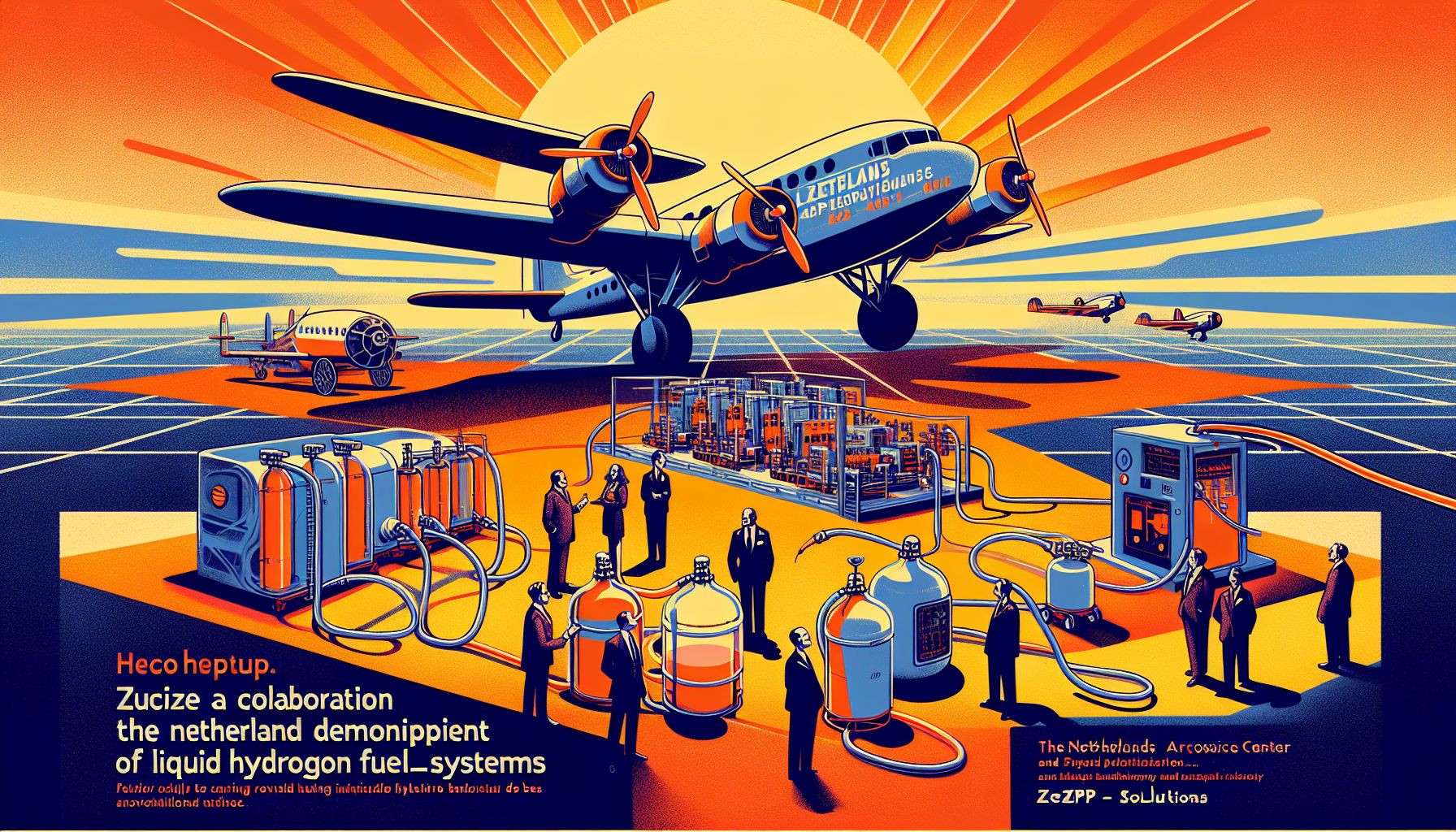NLR and Zepp.Solutions Collaborate on Liquid Hydrogen Aviation

Amsterdam, Tuesday, 17 December 2024.
The Netherlands Aerospace Centre partners with Zepp.Solutions to develop liquid hydrogen fuel systems, aiming for a demonstration flight by 2026 to lead in sustainable aviation technology.
Strategic Partnership for Green Aviation
The Netherlands Aerospace Centre (NLR) has signed a groundbreaking agreement with zepp.solutions to develop an advanced hydrogen fuel cell system for aviation applications [1]. This collaboration marks a significant step towards sustainable aviation, with both organizations pooling their expertise to enable liquid hydrogen-powered flight. The partnership specifically targets a demonstration flight scheduled for 2026 [1], aligning with broader industry efforts to achieve net-zero emissions by 2050 [2].
Technical Challenges and Innovation
Project leader Arjen Kloosterman from NLR highlights that the primary challenges extend beyond physical integration to include crucial airworthiness and safety considerations associated with introducing hydrogen systems in aircraft [1]. The project involves modifying a Pipistrel Velis Electro aircraft with hydrogen propulsion technology [1], requiring sophisticated engineering solutions. This aligns with research indicating that hydrogen-powered aircraft could achieve 53.5% reduction in energy consumption compared to traditional jet fuel aircraft [5].
Industry Context and Future Implications
This initiative comes at a crucial time when the aviation industry contributes approximately 12% of transportation sector CO2 emissions [2]. The project’s timing is strategic, as hydrogen is expected to reach cost-competitiveness in aviation by the early 2030s [2]. The collaboration between NLR and zepp.solutions represents part of a broader movement, with 26 countries having established national hydrogen strategies [2], collectively working toward a greener aviation future.
Roadmap to Implementation
The project’s 2026 demonstration flight timeline positions it well within the industry’s broader transition schedule. Current projections indicate that hydrogen propulsion technologies will be technologically viable for commercial aviation by 2050 [2], though this depends on several critical factors including industrial collaboration and infrastructure development. The partnership between NLR and zepp.solutions contributes to the EU’s ambitious targets of incorporating sustainable aviation fuels, with plans to achieve a 63% blend by 2040 [2].

